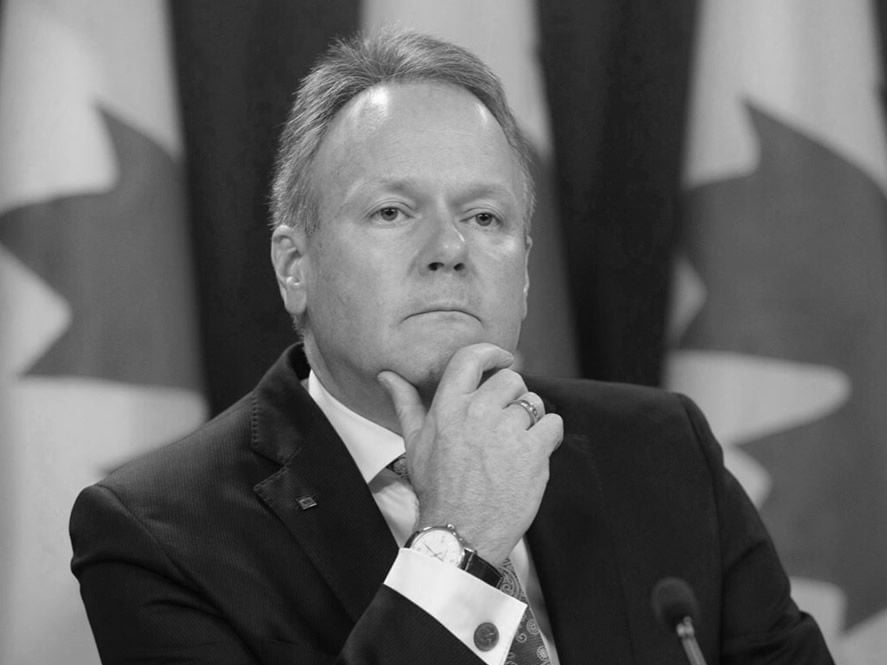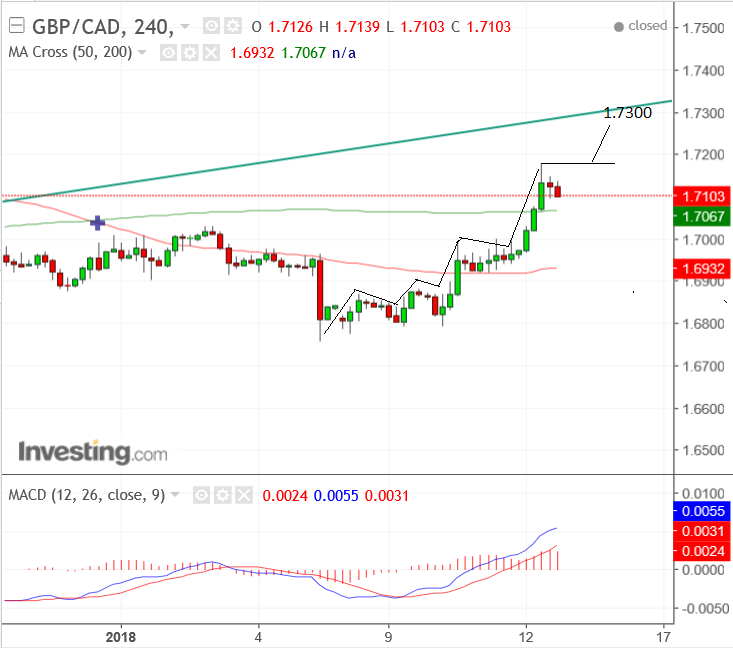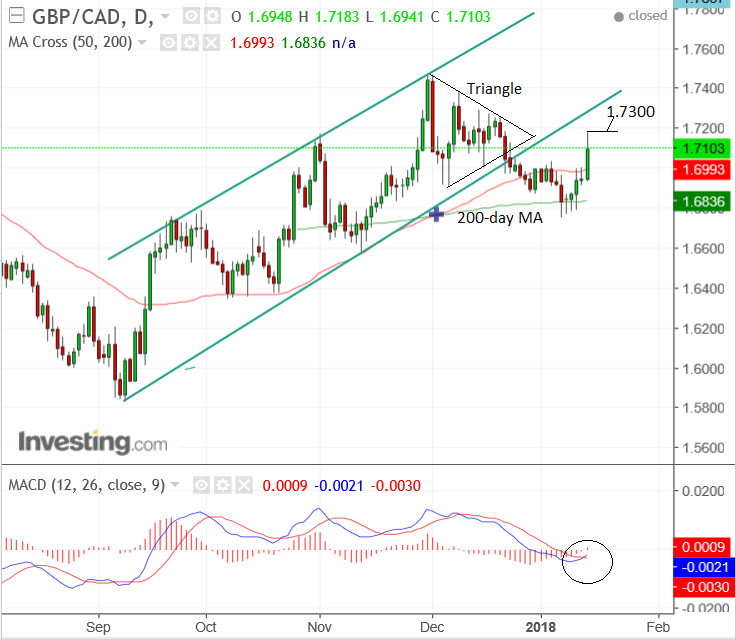The Pound-to-Canadian Dollar Rate Week Ahead Forecast

Above: Stephen Poloz will guide markets on future Canadian monetary policy this week. (C) Pound Sterling Live.
The Bank of Canada will this week meet to decide whether to increase interest rates and may help provide some much-needed clarity on the future direction of the GBP/CAD exchange rate.
The Pound-to-Canadian Dollar exchange rate has for much of 2018 been seen to be caught in a short-term downtrend. However, Sterling staged a strong recovery at the end of last week after CAD weakened on fresh US trade protectionist trade fears, and the short-term trend has now probably changed.
On balance, our studies suggest GBP/CAD has begun a new short-term uptrend and should the exchange rate succeed in breaking above Friday's 1.7180 highs, we foresee this trend continuing up to a target at 1.7300.
At the time of writing on Monday morning the exchange rate is quoted at 1.7105.

The momentum indicator on the four-hour chart above is corroborating the rising price action which indicates the uptrend is strong and likely to continue.
On the daily chart, the MACD has crossed above its signal line and looks like it is about to start rising strongly higher also adding evidence to expectations of more upside.

While technicals do appear favourable to further GBP/CAD gains we will remain wary of the main risk event for CAD in the week ahead which comes in the form of the January Bank of Canada policy meeting.
Get up to 5% more foreign exchange by using a specialist provider to get closer to the real market rate and avoid the gaping spreads charged by your bank when providing currency. Learn more here.
Data and Events for the Canadian Dollar
The Bank of Canada policy event takes place on Wednesday, January 17, at 15.00 GMT.
The BoC is widely expected to raise interest rates by 0.25% to 1.25% following recent strong economic data, and even after recent fears about the US backing out of NAFTA talks, the market is still expecting a rate hike with a circa 80% probability.
"Considering the good economic performance, it is clear that the Canadian economy no longer needs that much stimulation. Given these circumstances, the BoC should seize the opportunity and raise its key interest rates 25 basis points at its January 17 meeting," says Desjardin senior analyst Hendrix Vachon.
Canadian investment bank TD Securities also think the BoC will look through current uncertainty relating to NAFTA and hike rates:
"NAFTA rumours have injected a dose of uncertainty into next week's meeting but we do not think they will be enough to derail a rate hike that’s 80% priced. Look for Poloz's data dependence to outweigh his risk management framework as further gains in CPI and the labour market will give reason to sound upbeat."
With an interest rate rise apparently priced by the market the prospect of a strong upside response by CAD to such a move appears diminished. In fact, the key risk is that the BoC shies away from raising rates, in which case a sizeable fall in the Canadian currency would be expected. Further, an interest rate rise accompanied by an overtly cautious tone being delivered regarding future rate rises would also prove detrimental for the Canadian Dollar.
Data and Events for the Pound
The key data release for the Pound is inflation data out at 09.30 on Tuesday, January 16, which is forecast to ease to 3.0% compared to the same time in the previous year, from 3.1% in November.
Core inflation is likewise forecast to ease to 2.6% from 2.7% previously.
A higher-than-forecast print will probably strengthen the Pound as it will increase pressure on the MPC to increase interest rates in order to try and limit future inflation levels.
Higher interest rates are positive for currencies because they draw greater inflows of foreign capital with the promise of higher returns.
Analysts at TD Securities are marginally more hawkish, expecting inflation to remain at 3.1% and not fall back in December.
"Our 3.1% forecast for headline CPI is just above the top of the BoE's target range and well above the BoE's forecast of 2.7% from the Nov Inflation Report. Core CPI should soften by a tenth, but the big jump in energy prices into the end of the year will keep the headline well-supported," says TD Securities in a note to clients ahead of the new week.
Friday sees the release of retail sales data which often moves Sterling as it gives an insight into the health of the UK consumer.
The UK economy is heavily reliant on the retail sector and should data beat expectations we would expect some positive response in Sterling.
The bar is actually set quite low for a positive surprise as monthly retail sales for December is forecast to show a decline of 0.6%, a slowing from the previous month's growth rate of 1.1%.
Monday sees the Bank of England (BOE) in focus with a speech from Silvana Tenreyo (above), the new member of the Bank's Monetary Policy Committee (MPC), at 18.15 GMT on Monday, January 15.
Not long after she first joined the BOE back in October 2017 Tenreyro said she would want to see UK employment improve and wages rise further before advocating raising interest rates - a move which would be bullish for the Pound.
"Silvana Tenreyro, an external MPC member, said she would need to see more evidence of the elimination of slack in the labour market before voting for a rate rise," says Chris Giles, Economics Editor at the Financial Times.
Yet the unemployment rate has not fallen since she said those comments and instead has stayed the same at 4.3% since September 2017, so assuming this is still her view, we do not expect her to talk up interest rates on Monday, which is on margin negative for Sterling.
Get up to 5% more foreign exchange by using a specialist provider to get closer to the real market rate and avoid the gaping spreads charged by your bank when providing currency. Learn more here.




